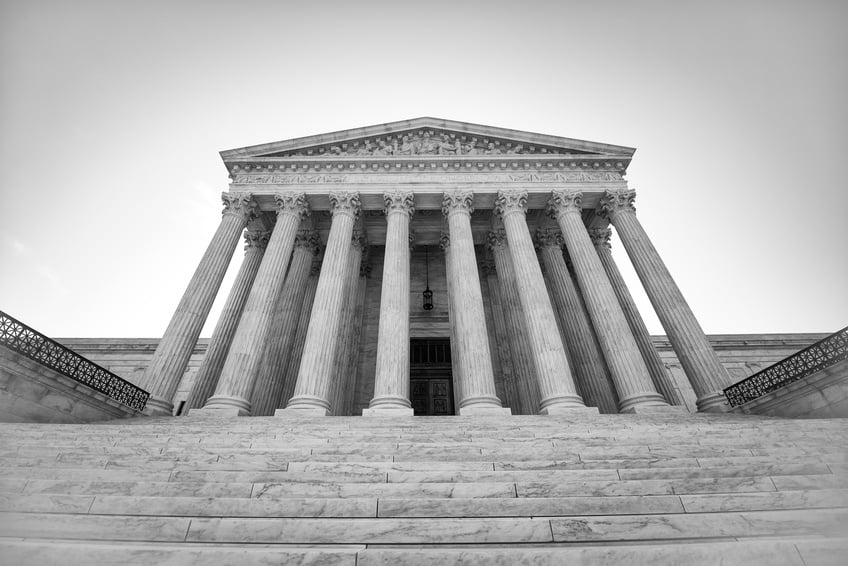On Thursday, June 16, the Supreme Court issued its opinion in Universal Health Services v. United States ex rel. Escobar, an opinion with important implications for companies seeking to assess and manage their legal risks under the False Claims Act (“FCA”). FCA risk has become an increasingly significant concern in recent years, with the U.S. Department of Justice recovering more than $28 billion dollars in FCA settlements and awards between 2009 and 2015. In a unanimous decision authored by Justice Clarence Thomas, the Supreme Court settled the split in the federal circuits and held that implied certification is a viable theory of liability under the FCA and need not be limited to the failure to disclose violations of expressly designated conditions of payment. Yet the Supreme Court also cabined FCA liability by anchoring its viability to the question of materiality—guidance that will create complicated mixed questions of law and fact in both implied and express certification cases.
The Underlying Facts of the Supreme Court decision
Behind the Escobar case lies a tragic set of circumstances. From 2007 to 2009, Escobar’s daughter sought mental health support from a clinic owned and operated by Universal Health Services (“UHS”). His lawsuit alleged that she received unsupervised treatment at the clinic from individuals who were not licensed to provide medical services without supervision. The medication they prescribed caused her to suffer seizures that eventually took her life.
Escobar sued Universal Health Services as a qui tam relator on behalf of the United States government, arguing that the company defrauded the government by billing Medicaid for services provided to his daughter. He and the government argued that bills for these services were legally false because UHS failed to disclose that it was not in compliance with relevant mental health facility staff and licensing requirements. Although the company had never expressly certified that it was in compliance with these regulations, the relator and the government asserted an implied certification theory, arguing that the company implicitly certified its compliance each time it submitted a claim for payment.
The trial court initially dismissed the case, applying First Circuit precedent that recognized the implied certification theory, but concluding that compliance with the regulatory requirements cited by Escobar was not a condition of payment. The First Circuit reversed in relevant part, noting that each time a party submits a claim to the government it implicitly communicates that it satisfies program requirements and is entitled to payment. The First Circuit further held that a false claim could result from a knowing misrepresentation of compliance with a material condition of payment, whether that condition of payment is express or implied. Concluding that the applicable state Medicaid regulations provided evidence that adequate supervision was a material condition of payment, the First Circuit revived relevant portions of the lawsuit. UHS appealed to the Supreme Court.
Implied Certification Is Here to Stay
The Supreme Court granted certiorari in order to resolve a circuit split over the viability and scope of the implied certification theory. It sided with the majority of circuits in recognizing the implied certification theory as a valid basis for FCA liability, endorsing the view that a company can implicitly certify its compliance with legal and contractual obligations simply by submitting a claim for payment. The Court further held that the FCA did not limit liability to violations of contractual, statutory, or regulatory provisions that the government expressly designated as conditions of payment—thus rejecting a limitation previously imposed in at least two circuits. The Supreme Court’s ruling also implicitly rejected a distinction that the courts below had drawn between conditions of payment, which could form a basis for FCA liability, and conditions of participation in a government program, which could not.
The Court did not go so far as to adopt the relator and government’s assertion that all claims for payment implicitly represent that the claimant is legally entitled to payment, however. Rather than making a broad ruling to this effect, the Court held that implied certification is a valid basis for liability where two conditions are satisfied: (1) the claim does not merely request payment, but also makes specific representations about the goods or services provided; and (2) the defendant fails to disclose noncompliance with material statutory, regulatory, or contractual requirements. In so doing, the Court placed materiality at the center of any FCA risk assessment.
Materiality: Does it Limit or Complicate FCA Liability?
Central to the Supreme Court’s ruling was the conclusion that, to constitute a basis for FCA liability, a false certification of compliance with a statutory, regulatory, or contractual requirement must be material to the government’s decision to make a payment. The Court thus rejected the First Circuit’s and government’s “extraordinarily expansive view of liability,” which deemed material any violation that the defendant knows would entitle the government to refuse payment.
When defining materiality, the Court looked to common law interpretations of the term and did not rely solely upon the definition of materiality found in Section 3729(b)(4) of the FCA. Notably, the Court stressed that the materiality requirement applicable to the FCA should be considered “demanding,” and that the FCA is not “an all-purpose antifraud statute” that can be used to punish “garden-variety breaches of contract or regulatory violations.”
The Supreme Court’s materiality analysis includes the following key points:
- The government’s express designation of compliance with a particular statutory, regulatory, or contractual requirement as an express condition of payment is relevant, but not dispositive, when determining whether that requirement is material;
- Noncompliance is not material just because the government would have the option to decline payment if it knew of the noncompliance;
- Noncompliance that is minor or insubstantial is not material;
- Proof of materiality may include evidence that the defendant knows the government consistently refuses to pay claims based on noncompliance with the particular requirement at issue;
- Conversely, noncompliance may not be material if the government pays the claim despite knowledge of the noncompliance;
- If the government regularly pays a particular type of claim despite actual knowledge of noncompliance, this may also be “strong evidence” that the requirement is not material; and
- A blanket contractual requirement of compliance with all applicable laws does not render every undisclosed legal violation material.
Notwithstanding these case-specific materiality considerations, the Court rejected UHS’s contention that materiality determinations are “too fact intensive” for courts to resolve at the motion to dismiss or summary judgment stage. Describing its materiality standards as “familiar and rigorous,” the Court emphasized a plaintiff’s burden of pleading FCA claims with particularity, including materiality allegations.
The Supreme Court’s endorsement of the implied certification theory, and its refusal to restrict FCA liability to misrepresentations about express conditions of payment, may expand FCA theories of recovery—particularly in those jurisdictions that did not previously adopt these interpretations. In this sense, companies doing business with the federal government may find themselves at increased risk of FCA liability (or, at least, increased risk of qui tam litigation).
At the same time, however, the Court’s test for implied certification—particularly its emphasis upon a “demanding” standard of materiality—may provide a significant opportunity to limit the scope of FCA liability and to thwart efforts to expand the FCA to “garden-variety breaches of contract or regulatory violations.” To be sure, and contrary to the Court’s suggestion, the Court’s directed focus on a materiality standard will present challenges for companies and lower courts required to assess the mixed questions of fact and law that undoubtedly will arise. This may increase the number of cases that cannot be resolved via a motion to dismiss or motion for summary judgment, resulting in higher costs for companies as more cases proceed to discovery for purposes of gathering evidence to assess whether or not compliance with a law or regulation is material to the government. What is clear from this significant ruling is that proactive assessment and management of FCA risks and careful attention to the developing doctrine of materiality must be a crucial part of the compliance regime of every government contractor or entity that does business with the U.S. government.





